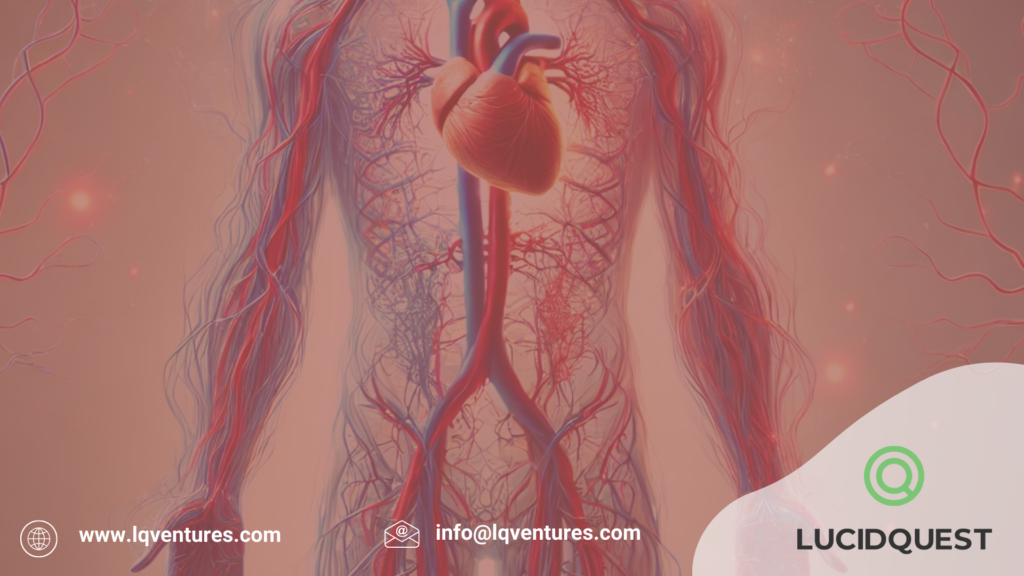This Cardiovascular Video Recap covers regulatory approvals, large real-world evidence, exploratory digital interventions, device innovations, and early clinical studies—plus more cardiovascular updates.
🎯 Watch Our Video Summary Capturing Cardiovascular News from the Last Two Weeks
Dive deeper
🗓️ Explore weekly details and sources
- Week 6–12 November 2025
- Week 13–19 November 2025
📚 Find your one-stop page for the full Cardiovascular archive.
Top Stories Covered In This Video
Chapters
0:00 Introduction
0:08 Otsuka–NCVC app-enabled salt reduction trial in cardiac rehabilitation (Vivoo urine-strip app)
0:32 Finerenone (Kerendia) wins Indian heart failure approval for HFpEF and HFmrEF, backed by FINEARTS-HF
1:06 Sitagliptin review highlights microvascular and anti-inflammatory effects without major CV event reduction
1:24 iRhythm real-world evidence shows 24–48h Holter often misses actionable arrhythmias; supports 14-day Zio monitoring
1:57 HERO trial to test HRV-biofeedback for veterans with persistent post-concussion symptoms
2:17 Venus P enables transcatheter pulmonary valve replacement at NHCS for repaired Tetralogy of Fallot
2:35 ICECAP study to evaluate coronary cryotherapy with DeepOCT plus NIRS and AI plaque assessment
3:01 First clinical TAVI cases guided by AI intra-operative software, TAVIPILOT Soft
3:23 How to reach us
Transcript
Welcome to the latest edition of Cardiovascular Updates, covering the latest breakthroughs. Brought to you by LucidQuest, this update highlights:
Japan’s Otsuka and the National Cerebral and Cardiovascular Center will test an app-enabled approach to salt reduction in outpatient cardiac rehab, pairing Vivoo urine strips with AI image processing and dietitian-guided feedback to encourage behavior change. This could streamline remote prescribing and adherence logistics.
India has granted finerenone, Kerendia, an approval for heart failure with a focus on HFpEF and HFmrEF, with reporting that the Finearts-HF Phase 3 showed a 16 percent reduction in a composite of cardiovascular death and total heart failure events. The move may intensify competition on pricing and formulary access while leaving current CKD–T2D pricing unchanged.
A University of Illinois Springfield review highlights sitagliptin’s potential microvascular and anti-inflammatory effects without preventing major cardiovascular events. Affordable generics can still carry access value where newer agents are out of reach.
Real-world evidence from iRhythm’s 1.1 million-patient dataset, published in Heart Rhythm, indicates 24–48 hour monitoring often misses actionable arrhythmias, supporting 14-day continuous Zio monitoring. Additional AHA 2025 analyses from 742,268 devices report high compliance with home self-application and suggest earlier rhythm risk across cardio–kidney–metabolic profiles.
The Hero trial will test heart rate variability biofeedback for veterans with persistent post-concussion symptoms. The protocol uses six weekly sessions plus twice-daily home practice versus control, targeting headaches, fatigue, sleep disturbance, dizziness, and cognitive issues.
In Singapore, the National Heart Centre reports six Venus P pulmonary valve replacements in adults with repaired Tetralogy of Fallot and severe regurgitation. Rapid recovery is highlighted and linked to AI-enabled 4D-flow CMR programs.
Looking ahead to Q1 2026, the Icecap study from CryoTherapeutics, SpectrawavE, and CRF will evaluate temporary coronary cryotherapy for non-obstructive high-risk plaques with DeepOCT plus NIRS imaging and AI to track cap thickness and lipid burden over time. This signals pipeline expansion in plaque-stabilization modalities.
In France, Caranx reports the first clinical procedures using Tavipilot Soft, intraoperative AI guidance during Sapien 3 Tavi in the 10-patient Saito-1A study at Clinique Pasteur, with accurate depth predictions versus final valve position and no intra-procedural complications reported.
Stay ahead in cardiovascular research! Like, share, and subscribe for weekly updates. Visit www.lqventures.com or email us at info@lqventures.com for expert healthcare consulting. See you next time.
Why it matters
- HF label growth for finerenone could expand options in HFpEF/HFmrEF where choices remain limited.
- Continuous ambulatory monitoring evidence may reset payer expectations for symptom-guided test duration.
- App-mediated nutrition and HRV-biofeedback reflect low-cost, scalable tools for behavior change in cardiometabolic care.
- Imaging-guided and AI-assisted structural interventions aim to standardise precision and broaden access.
- Early rhythm-risk signals across CKM may support proactive surveillance strategies.
🗓️ Explore weekly details and sources
- Week 6–12 November 2025
- Week 13–19 November 2025
📚 Find your one-stop page for the full Cardiovascular archive.
FAQ
What exactly did India approve for Kerendia, and on what basis?
India approved finerenone for heart failure, citing HFpEF/HFmrEF and FINEARTS-HF Phase 3 supporting data, including a 16% composite reduction; pricing reportedly unchanged [2].
Does sitagliptin reduce heart attacks or strokes according to the UIS review?
No. It does not prevent major events, but may help microvascular function and inflammation, which could still matter for overall cardiovascular health and access given generic cost [3].
How strong is the evidence that short-term Holter misses arrhythmias?
Analysis of over 1.1 million Zio monitors in Heart Rhythm found many actionable arrhythmias appear after 48 hours—even with daily symptoms—supporting up to 14-day continuous monitoring [4].
What outcomes will the HERO study measure?
It will assess symptom relief in veterans and service members with persistent post-concussion issues, comparing HRV-biofeedback versus control; specific endpoints are not stated [5].
Who might be eligible for Venus P at NHCS?
Adults with repaired TOF and severe pulmonary regurgitation who previously required open surgery; six cases reported with short recovery times at NHCS [6].
What is ICECAP trying to prove?
That catheter-based cryotherapy can stabilise non-obstructive high-risk plaques, using DeepOCT+NIRS imaging and AI to quantify cap thickness and lipid burden changes over time [7].
Entities / Keywords
Otsuka Pharmaceutical; National Cerebral and Cardiovascular Center (Japan); Vivoo app; salt reduction; finerenone; Kerendia; Bayer India; HFpEF; HFmrEF; FINEARTS-HF; sitagliptin; DPP-4 inhibitor; microvascular protection; iRhythm; Zio patch; long-term continuous monitoring; Holter; CKM; CKD; HERO; HRV-biofeedback; veterans; NHCS; Venus P; Tetralogy of Fallot; 4D-flow CMR; CryoTherapeutics; SpectraWAVE; HyperVue; CRF; ICECAP; Caranx Medical; TAVIPILOT Soft; TAVI; Sapien 3.
References
-
- https://www.otsuka.co.jp/en/company/newsreleases/2025/20251105_1.html
- https://www.fortuneindia.com/business-news/bayers-chronic-kidney-disease-therapy-kerendia-gets-additional-approval-as-heart-failure-drug-too-in-india/127990
- https://www.nprillinois.org/health-harvest/2025-11-11/uis-study-finds-diabetes-drugs-vascular-effects-may-help-protect-the-heart
- https://investors.irhythmtech.com/news/news-details/2025/iRhythm-Technologies-Announces-Publication-of-Large-Scale-Studyin-Heart-Rhythm-and-New-Data-Presented-at-AHA-Scientific-Sessions-2025/default.aspx
- https://www.concussionalliance.org/blog/hero-study-investigates-hrv-biofeedback-therapy-for-veterans
- https://www.eurekalert.org/news-releases/1106047
- https://cardiovascularnews.com/cryotherapeutics-spectrawave-and-crf-partner-for-icecap-clinical-study/
- https://cardiovascularnews.com/first-clinical-procedures-performed-using-ai-tavi-guidance-software/
